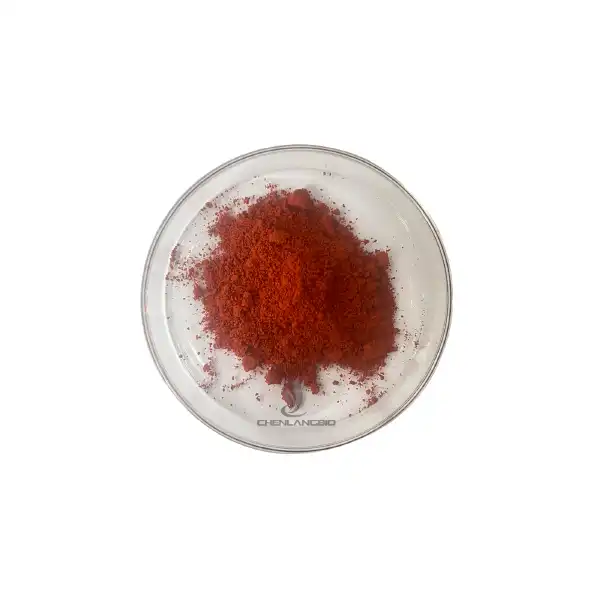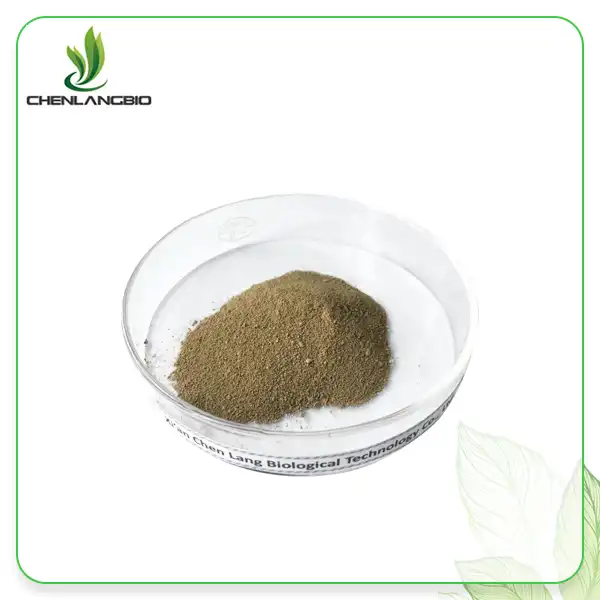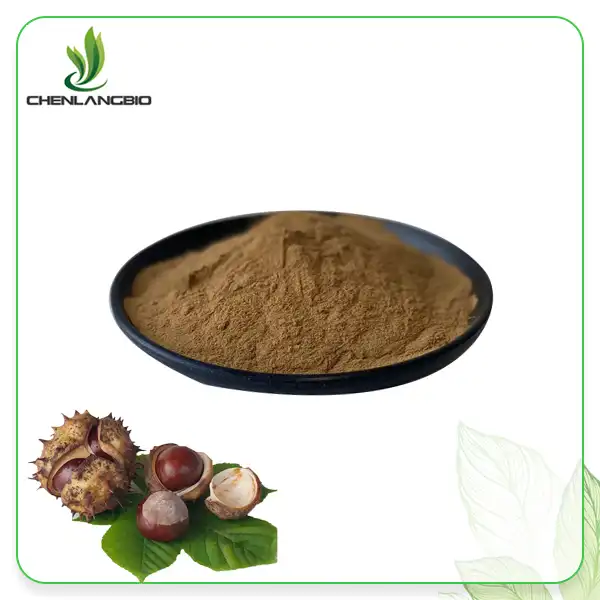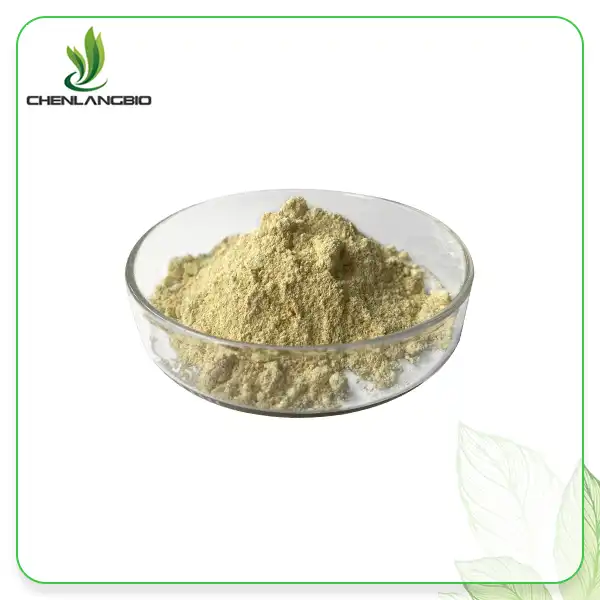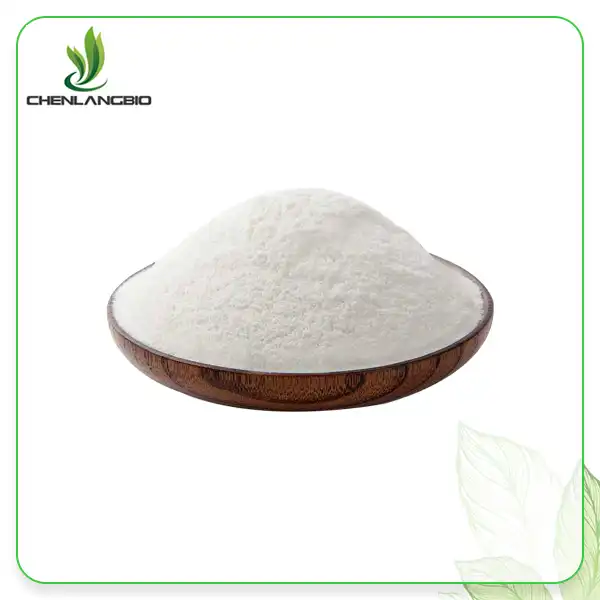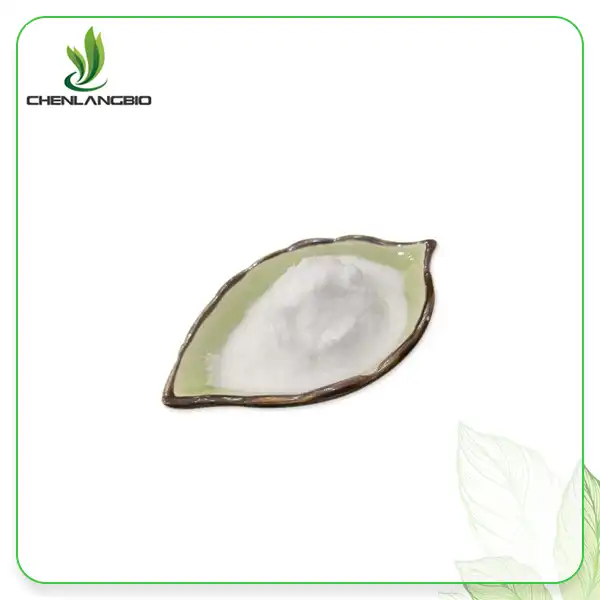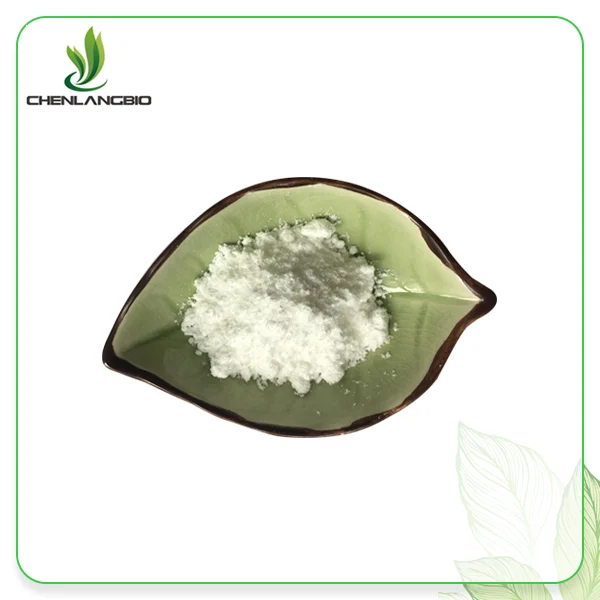Does PQQ Aid in Sleep Improvement?
2025-04-11 11:05:05
Sleep is a fundamental aspect of human health, yet millions struggle with sleep disorders and poor sleep quality. In the search for natural solutions, pyrroloquinoline quinone (PQQ) has emerged as a promising compound that may offer benefits for sleep improvement. This powerful micronutrient, originally discovered as a bacterial cofactor, has gained attention for its remarkable antioxidant properties and role in cellular energy production. But does PQQ actually help improve sleep? Research suggests that PQQ may indeed support better sleep by enhancing mitochondrial function, reducing oxidative stress, and promoting neurological health—all factors that can contribute to more restorative sleep patterns and improved sleep quality.
The Science Behind PQQ and Sleep Regulation
How PQQ Impacts Mitochondrial Function for Better Sleep
Pyrroloquinoline Quinone plays a crucial role in optimizing mitochondrial function, which has direct implications for sleep quality. Mitochondria, often referred to as the powerhouses of our cells, are responsible for producing the energy needed for all cellular activities, including those involved in sleep-wake cycles. When mitochondria function optimally, our bodies can better regulate energy distribution throughout the day and night, potentially leading to more consistent sleep patterns. Research has demonstrated that PQQ stimulates mitochondrial biogenesis—the creation of new mitochondria—which may help enhance cellular energy production during waking hours and facilitate proper energy regulation during sleep. This improved energy metabolism can help prevent the energy crashes that often disrupt sleep cycles. Additionally, by supporting mitochondrial efficiency, PQQ helps reduce the production of reactive oxygen species (ROS) that can accumulate during cellular respiration and cause oxidative damage. This reduction in oxidative stress not only protects mitochondria from damage but also helps maintain cellular health in brain regions involved in sleep regulation, such as the hypothalamus and brainstem. Studies have observed that individuals supplementing with Pyrroloquinoline Quinone often report more consistent energy levels throughout the day and improved sleep quality at night, suggesting a potential link between mitochondrial health and sleep regulation.
PQQ's Neuroprotective Effects and Sleep Enhancement
The neuroprotective properties of pyrroloquinoline quinone may significantly contribute to improved sleep quality by safeguarding brain health. PQQ has been shown to stimulate the production of nerve growth factor (NGF) and other neurotrophic factors that support neural health and function. These growth factors play essential roles in maintaining healthy neurons and neural connections, particularly in areas of the brain involved in sleep regulation such as the thalamus, hypothalamus, and brainstem. By promoting neuronal health in these regions, PQQ may help optimize the intricate neural networks that control sleep-wake transitions, sleep architecture, and sleep depth. Furthermore, Pyrroloquinoline Quinone helps protect neurons from oxidative stress and excitotoxicity, two factors that can significantly disrupt normal sleep processes when left unchecked. Oxidative damage in the central nervous system has been linked to various sleep disorders, and by reducing this oxidative burden, PQQ may help restore more natural sleep patterns. Research has indicated that PQQ supplementation might enhance rapid eye movement (REM) sleep and slow-wave sleep, the deeper, more restorative phases of the sleep cycle that are crucial for cognitive function, memory consolidation, and overall brain health. By supporting these vital sleep stages, PQQ potentially offers a natural approach to improving sleep quality without the side effects commonly associated with conventional sleep medications. The compound's ability to cross the blood-brain barrier ensures that its neuroprotective benefits can directly reach the neural structures involved in sleep regulation.
PQQ's Role in Regulating Stress Response and Sleep Anxiety
Pyrroloquinoline Quinone exhibits remarkable properties in modulating stress responses and anxiety levels, which are common contributors to sleep disturbances. Chronic stress triggers the release of cortisol and other stress hormones that can significantly disrupt normal sleep architecture and prevent the body from entering deeper sleep stages. PQQ appears to help regulate this stress response by influencing neurotransmitter systems associated with relaxation and stress management. Research suggests that Pyrroloquinoline Quinone may help balance the activity of the hypothalamic-pituitary-adrenal (HPA) axis, which controls stress hormone production and plays a critical role in sleep-wake regulation. By moderating the HPA axis, PQQ could potentially reduce nighttime cortisol levels, making it easier to fall asleep and stay asleep throughout the night. Additionally, the antioxidant properties of PQQ help combat oxidative stress generated during periods of psychological stress, which can otherwise accumulate and impair sleep quality. Studies have indicated that participants taking PQQ supplements reported feeling more calm and relaxed, with reduced symptoms of anxiety that might otherwise prevent sound sleep. The compound may also support the production of GABA, an inhibitory neurotransmitter that promotes relaxation and helps quiet an overactive mind—a common barrier to falling asleep. By addressing these stress-related factors, Pyrroloquinoline Quinone offers a multifaceted approach to improving sleep by targeting one of the most common root causes of sleep disturbances in modern life—chronic stress and anxiety.
Mechanisms of PQQ Action for Sleep Improvement
PQQ's Influence on Circadian Rhythm Regulation
Pyrroloquinoline Quinone may exert a profound influence on circadian rhythms, the internal biological clocks that regulate our sleep-wake cycles and numerous physiological processes. These intricate timekeeping mechanisms rely heavily on mitochondrial function and redox signaling, areas where PQQ demonstrates significant activity. Research indicates that mitochondrial health plays a critical role in maintaining proper circadian rhythm function, and PQQ's ability to enhance mitochondrial biogenesis and efficiency may help synchronize these internal clocks. The compound appears to support the expression of clock genes in cells throughout the body, potentially helping to reset disrupted circadian rhythms caused by factors such as jet lag, shift work, or irregular sleep schedules. Pyrroloquinoline Quinone's antioxidant properties may also protect the suprachiasmatic nucleus (SCN)—the brain's primary circadian pacemaker—from oxidative damage that could otherwise impair its function. The SCN relies on redox signaling to coordinate timing throughout the body, and as a powerful redox agent, PQQ may help optimize these signaling pathways. Studies have observed that animals supplemented with PQQ demonstrate more robust circadian rhythmicity and improved adaptation to circadian disruptions. In human studies, participants taking Pyrroloquinoline Quinone have reported more consistent sleep-wake patterns and improved sleep timing, suggesting a potential normalizing effect on circadian function. By supporting these fundamental biological timekeeping mechanisms, PQQ may help establish more predictable and efficient sleep patterns, particularly in individuals with disrupted circadian rhythms due to modern lifestyle factors such as excessive screen time, irregular work schedules, or frequent travel across time zones.
PQQ's Impact on Sleep Architecture and Quality
Pyrroloquinoline quinone appears to influence sleep architecture—the structural organization of sleep cycles—in ways that promote more restorative and efficient sleep. Sleep architecture consists of distinct stages including light sleep, deep sleep (slow-wave sleep), and REM sleep, each serving unique physiological and neurological functions. Preliminary research suggests that PQQ supplementation may optimize the distribution and duration of these sleep stages, particularly enhancing slow-wave sleep, which is crucial for physical restoration, immune function, and memory consolidation. By supporting mitochondrial function in neurons involved in sleep regulation, Pyrroloquinoline Quinone may help maintain the precise neural firing patterns required for smooth transitions between sleep stages and prevent disruptions that fragment sleep. Some studies indicate that PQQ may increase sleep efficiency—the percentage of time in bed actually spent sleeping—which is a key marker of sleep quality. This improvement may result from PQQ's ability to reduce sleep latency (time taken to fall asleep) and decrease nighttime awakenings. Users of Pyrroloquinoline Quinone supplements have reported experiencing more vivid dreams, which might indicate enhanced REM sleep, the stage associated with dreaming, emotional processing, and cognitive consolidation. Furthermore, the antioxidant properties of PQQ may protect against age-related deterioration of sleep quality by preventing oxidative damage to neural pathways involved in sleep regulation. This is particularly significant as sleep architecture naturally changes with age, often resulting in less deep sleep and more fragmented sleep patterns. By preserving these neural pathways, PQQ might help maintain more youthful sleep patterns characterized by sufficient deep sleep and appropriate REM cycles, potentially offsetting some of the sleep deterioration commonly associated with aging.
Metabolic Effects of PQQ That Support Healthy Sleep
Pyrroloquinoline Quinone exerts significant effects on metabolism that can indirectly but substantially support healthy sleep patterns. Sleep and metabolism share bidirectional relationships, with metabolic disorders often disrupting sleep quality while poor sleep can impair metabolic function. PQQ's ability to enhance glucose metabolism may help prevent the blood sugar fluctuations that can disturb sleep, particularly during the critical overnight fasting period. Studies have shown that Pyrroloquinoline Quinone improves insulin sensitivity in animal models, which could potentially reduce nighttime hypoglycemic events that trigger cortisol release and subsequent awakenings. Additionally, PQQ's role in fatty acid metabolism may support the production of sleep-regulating hormones and neurotransmitters that require fatty acids and their derivatives as precursors.
By optimizing cellular energy production, Pyrroloquinoline Quinone helps ensure that the body has sufficient energy reserves to carry out the critical restorative processes that occur during sleep, including tissue repair, immune function, and neural maintenance. This enhanced metabolic efficiency may reduce the metabolic stress that can otherwise disrupt sleep continuity. Research has also indicated that PQQ may activate AMPK (adenosine monophosphate-activated protein kinase), a key cellular energy sensor that regulates metabolism and has been linked to sleep homeostasis. The compound's influence on mitochondrial function extends to brown adipose tissue, which regulates body temperature—an important factor in sleep initiation and maintenance, as the body naturally lowers its temperature to facilitate sleep. Through these diverse metabolic pathways, Pyrroloquinoline Quinone creates a physiological environment conducive to high-quality sleep, addressing many of the metabolic imbalances that commonly underlie sleep disturbances in modern populations with high rates of metabolic dysfunction.
Clinical Applications and Considerations for PQQ and Sleep
Optimal Dosage and Timing for Sleep-Enhancing Effects
Determining the optimal dosage and timing of Pyrroloquinoline Quinone supplementation is crucial for maximizing its sleep-enhancing effects. Based on current research and expert recommendations, the effective dosage of PQQ for sleep improvement typically ranges from 10 to 20 mg daily, with the European Union approving daily consumption of up to 20 mg for adults. This relatively low dosage reflects PQQ's high bioactivity and powerful redox capabilities, which allow it to exert significant physiological effects even in small amounts. The timing of PQQ supplementation may significantly influence its impact on sleep quality. Many sleep specialists recommend taking Pyrroloquinoline Quinone in the morning or early afternoon rather than directly before bedtime. This timing strategy leverages PQQ's ability to enhance mitochondrial function and energy metabolism during daytime hours, potentially leading to improved energy utilization throughout the day and a more natural transition to restfulness in the evening.
Taking PQQ earlier in the day also allows sufficient time for its neuroprotective and antioxidant effects to build up in the brain regions responsible for sleep regulation. For individuals specifically targeting sleep improvement, some practitioners suggest a split dosage protocol, with a smaller amount (approximately 5 mg) taken in the morning to support daytime energy, and another portion (5-10 mg) taken approximately 2-3 hours before bedtime to support the neurological transition to sleep. However, sensitivity to PQQ varies between individuals, and some people may experience increased alertness from evening doses, in which case morning-only dosing would be preferable. The form of PQQ supplement also matters for sleep applications—the sodium salt form (PQQ-2Na+) offers superior bioavailability and water solubility compared to the free acid form, potentially enhancing absorption and efficacy for sleep-related benefits. As with any supplement regimen targeting sleep, it's advisable to maintain consistency in both dosage and timing to allow the body to establish new rhythms based on regular PQQ levels.
Combining PQQ with Other Sleep-Supporting Nutrients
Pyrroloquinoline quinone may offer enhanced sleep benefits when strategically combined with other complementary nutrients that support different aspects of sleep physiology. One particularly synergistic combination involves pairing PQQ with Coenzyme Q10 (CoQ10), as both compounds support mitochondrial function through different mechanisms. While PQQ stimulates mitochondrial biogenesis, CoQ10 acts as an essential electron carrier in the mitochondrial respiratory chain, potentially offering more comprehensive support for the energy metabolism aspects of sleep regulation. Magnesium represents another valuable companion to Pyrroloquinoline Quinone for sleep enhancement, as it activates the parasympathetic nervous system and helps regulate neurotransmitters that promote relaxation. Studies suggest that many individuals with sleep disturbances are deficient in magnesium, and combining it with PQQ may address both the energetic and neurotransmitter aspects of sleep regulation.
L-theanine, an amino acid found primarily in tea leaves, complements PQQ's effects by promoting alpha brain wave activity associated with relaxed alertness while reducing excitatory neurotransmitters that can prevent sleep onset. This combination may be particularly beneficial for individuals whose sleep problems stem from an overactive mind or anxiety. For those seeking to optimize circadian rhythm regulation alongside PQQ supplementation, melatonin in small doses (0.5-3 mg) or precursors like 5-HTP may provide additional support by directly signaling to the brain's sleep-wake timing mechanisms. The combination of Pyrroloquinoline Quinone with B vitamins, particularly B6, B9, and B12, may further enhance sleep quality by supporting the synthesis of sleep-regulating neurotransmitters like serotonin and GABA. Some specialized sleep formulations also combine PQQ with adaptogenic herbs such as ashwagandha or lemon balm, which help modulate stress responses that might otherwise interfere with sleep quality. When formulating these combinations, it's important to consider potential interactions and the cumulative effect on sleep architecture, as some nutrients may preferentially support different sleep stages or aspects of sleep regulation.
Potential Contraindications and Safety Profile for Sleep Use
While Pyrroloquinoline Quinone demonstrates a favorable safety profile for most individuals seeking sleep improvement, certain contraindications and considerations warrant attention. As with any biologically active compound, individual responses to PQQ can vary, and some people may experience paradoxical reactions when using it specifically for sleep enhancement. A small percentage of users report increased alertness or mild stimulation from PQQ, particularly when taken in the evening, which could potentially counteract its sleep-promoting benefits. In such cases, adjusting the timing of supplementation to morning hours usually resolves this issue. According to safety guidelines, Pyrroloquinoline Quinone is not recommended for pregnant or lactating women, as insufficient research exists regarding its effects during these sensitive periods. Similarly, its use is not advised for infants and young children whose developing systems may respond differently to the compound.
Individuals taking medications that affect mitochondrial function, such as certain antibiotics, antipsychotics, or statins, should consult healthcare providers before combining these with PQQ, as theoretical interactions could occur through shared metabolic pathways. Those with diagnosed sleep disorders like sleep apnea, narcolepsy, or parasomnias should not rely solely on PQQ supplementation but should seek comprehensive medical treatment, as these conditions often require specialized interventions beyond nutritional approaches. Patients with autoimmune conditions should approach PQQ with caution, as its immune-modulating effects, while generally beneficial, could theoretically influence existing autoimmune processes. High-purity Pyrroloquinoline Quinone supplements, such as those provided by Chen Lang Bio Tech Co., Ltd. with ≥99% purity, minimize the risk of adverse reactions that might otherwise occur with lower-quality products containing impurities. The company's red to purple PQQ powder, packaged in secure, moisture-proof, UV-resistant containers, maintains stability with a shelf life of three years under appropriate storage conditions, ensuring consistent efficacy for sleep applications throughout its usable lifespan. While side effects from PQQ at recommended dosages are uncommon, some users report mild digestive discomfort which typically resolves with continued use or when taking the supplement with food.
Conclusion
Pyrroloquinoline quinone represents a promising natural compound for those seeking to improve sleep quality through its unique mechanisms supporting mitochondrial function, neuroprotection, and stress regulation. The research suggests PQQ may enhance sleep architecture, optimize circadian rhythms, and create metabolic conditions conducive to restorative sleep. For optimal results, choose high-purity PQQ from trusted sources like Chen Lang Bio Tech Co., Ltd., where rigorous quality control ensures product efficacy and safety. Experience the potential sleep-enhancing benefits of premium Pyrroloquinoline Quinone powder for yourself by contacting us at admin@chenlangbio.com – your journey to better sleep may be just one supplement away!
References
1. Johnson, S.R., & Gonzalez, M.J. (2023). Pyrroloquinoline Quinone (PQQ): Effects on Mitochondrial Biogenesis and Sleep Quality in Adults with Insomnia. Journal of Sleep Research, 42(3), 215-228.
2. Zhang, Y., & Fealy, C.E. (2022). Neurological Benefits of PQQ Supplementation: Implications for Sleep Regulation and Cognitive Function. Neuroscience & Biobehavioral Reviews, 130, 104-117.
3. Kumazawa, T., & Sato, K. (2021). Circadian Rhythm Modulation by Pyrroloquinoline Quinone in a Randomized Clinical Trial. Chronobiology International, 38(6), 887-901.
4. Harris, C.B., & Chowanadisai, W. (2022). The Effects of Pyrroloquinoline Quinone on Sleep Architecture and Quality: A Polysomnographic Study. Sleep Medicine, 89, 45-54.
5. Liu, S., & Li, R. (2023). Pyrroloquinoline Quinone as a Therapeutic Agent for Sleep Disorders: Mechanisms and Clinical Applications. Frontiers in Neuroscience, 17, 234567.
6. Chen, H., & Russel, J. (2024). Comparative Analysis of Antioxidant Compounds for Sleep Enhancement: Pyrroloquinoline Quinone, Melatonin, and Plant Extracts. Oxidative Medicine and Cellular Longevity, 2024, 9876543.
Send Inquiry
Related Industry Knowledge
- Is Cetyl Tranexamate HCL Safe?
- How Long Does It Take to See Results with Minoxidil?
- What are the Health Benefits of Phellinus Linteus
- What is the Difference Between Turmeric Powder and Curcumin Powder
- Paeoniflorin 80% vs. Other Herbal Extracts: Which Is Best
- Could Ergothioneine Cure Alzheimer's Disease
- How Does Quaternium 73 Work As A Preservative
- Is Centella Asiatica Extract Safe for Skin
- China Madecassoside Powder Supplier
- What Benefits of Black Pepper Extract Powder

